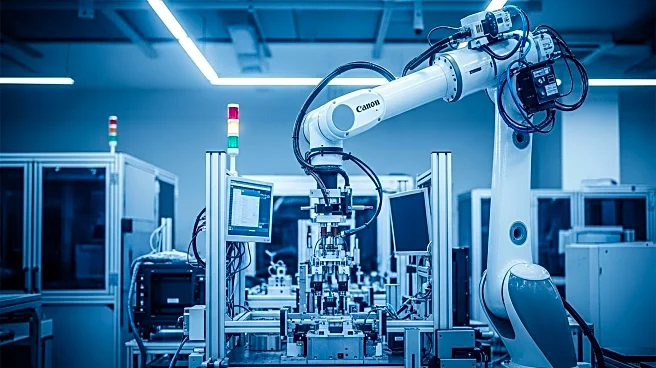What's Happening?
The Board of Investments (BOI) of the Philippines has actively engaged over 300 Japanese investors in a webinar hosted by Mitsubishi UFJ Financial Group (MUFG) Bank. The BOI is positioning the Philippines as a reliable hub for advanced manufacturing and services, highlighting sectors such as semiconductors, electronics, renewable energy, green metals, and aerospace. Lanie Dormiendo, director of BOI International Investments Promotion Service, emphasized the successful operations of Japanese companies like Toyota Motors and Epson in the Philippines, encouraging further investment. The webinar is part of a tripartite agreement between MUFG Bank, Security Bank Corporation, and the BOI, aimed at promoting investments in the Philippines. Japan remains a significant economic partner, being the top source of foreign direct investments in the first half of 2025.
Why It's Important?
The Philippines' strategic move to attract Japanese investments in advanced manufacturing is crucial for its economic growth and development. By focusing on sectors like semiconductors and renewable energy, the country aims to enhance its industrial capabilities and create job opportunities. The involvement of major Japanese companies signifies trust and potential for long-term economic partnerships. This initiative aligns with the Marcos administration's policy reforms, including the CREATE MORE Act and infrastructure development, which are designed to make the Philippines more competitive in the global market. The success of this endeavor could lead to increased foreign direct investment, boosting the country's economic stability and growth.
What's Next?
The BOI plans to continue its efforts to attract Japanese investments, with a business mission to Japan scheduled for November. This mission will further explore investment opportunities and strengthen economic ties between the two countries. The Philippines is expected to implement more policy reforms to facilitate strategic investments and improve its business environment. Stakeholders, including government officials and business leaders, will likely monitor the outcomes of these initiatives closely, assessing their impact on the country's economic landscape.









